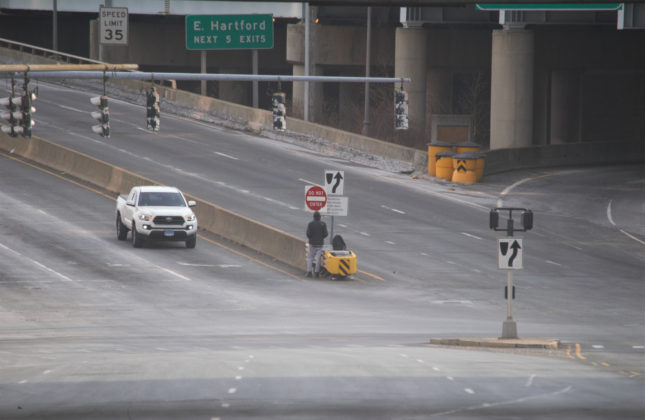Let’s suppose there was a recent proposal to reduce your organization’s budget by 21%. Your organization had been criticized for a lack of transparency. Let’s suppose you claimed your staff were leaving to work elsewhere as a reaction to calls for accountability. In almost every other profession, employees endure oversight without refusing to perform their jobs out of spite, even when the metrics are flawed and themselves in need of reform. But you regard your organization primarily as a fraternity, and not as a public service — even though it is funded by taxpayers and not members’ dues.
The service you provide is not always terrible, and to add complexity, the communities often hurt most by bad actors also still place calls for your service. But for every amazing and sensitive officer who is doing outreach to those with no current address, there is another who can’t be bothered to wear a mask when having close contact with Hartford residents during the pandemic. That’s not as dramatic, of course, as the violence your organization is typically called out for, but it is real and shows casual disrespect.
Somebody else can provide the studies on how law enforcement does not necessarily prevent all types of crime, but what we can do is observe how the Hartford Police Department has chosen to use what staff it has.
It seems to me that if I were short staffed (or claiming such at every turn), I would be focused on using the resources I had to go after the worst: those endangering the safety of others. Arresting people for murder, assault, reckless driving? I’m not mad at you.
Some of this is how tax dollars are being spent, but these allegedly scarce resources are also being wasted on penalizing panhandling.
Billboards asking people to spend money on diamond rings? Fine.
Scouts selling cookies outside a grocery store? Fine.
Commercials selling everything from cars to delivery services? Acceptable. A person on the street asking another person for money? That’s an arrestable offense.
Tracking this during the month of January — one of the coldest times of the year — the Hartford Police Department made at least 34 arrests for the act of asking. I word it this way because the same individuals’ names appear again and again. This data comes from the Hartford Police Department Daily Arrest Log; only data about adult arrests is publicly available.
This is not unlike the past spate of prostitution arrests. Someone is brought in, released a few hours later, and is right back out.
Are they offered any support services? Given leads for legal jobs? Anything? There is no transparency when it comes to the Hartford Police Department. For instance, the public database listing calls for service, which is supposed to be updated daily, has had no new information added since May 2021. We can only speculate.
No crime — if you want to call asking strangers for a favor a crime — is being prevented.
What is the goal?
From the arrest log, we can see that a few of these folks are brought in for outstanding warrants, but that does not seem like enough to warrant what comes down to harassment. Only the smallest minority of those with other charges had anything more serious than previous panhandling or loitering/trespassing charges. It’s not as if police are solving dozens of homicide cases by using our law enforcement officers in this way.
Because I walk around a lot, people frequently ask me for money. I have never had a situation where I felt like calling the police was necessary. The couple of times someone was rude to me, I was rude back. End scene. No additional drama. Nothing to write in my diary about. Nobody was threatened. Nobody has thrown hands.
So, why? What is the goal?
It may help to take a look at where we are seeing this law enforced:
Any questions?

